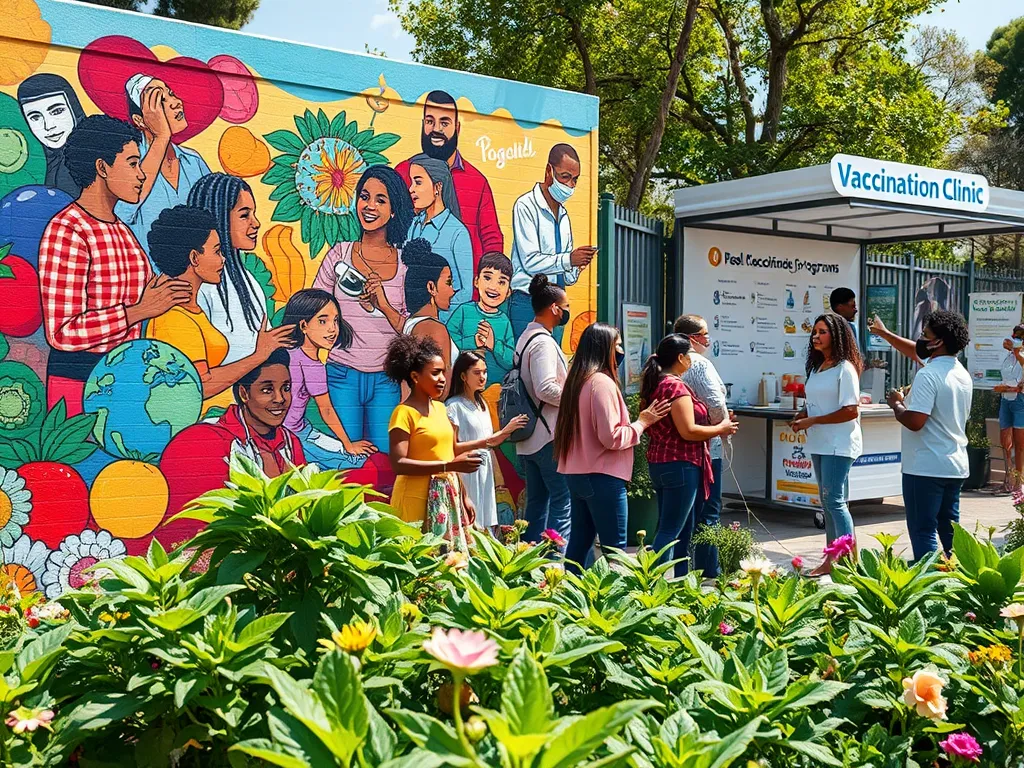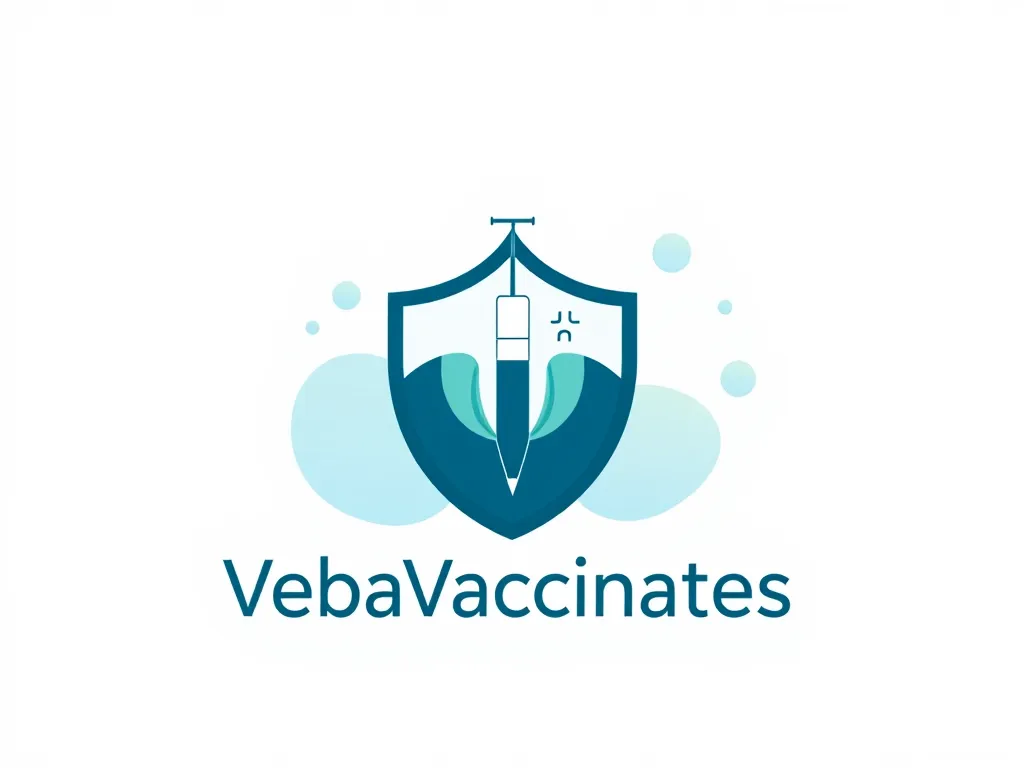Maximizing Community Health via Vaccination Programs

Enhancing Community Health Through Vaccination Programs
Enhancing community health through vaccination programs is a critical endeavor that serves to protect individuals and communities from preventable diseases. Vaccination programs not only contribute to individual health but also foster healthier populations by reducing the incidence and spread of infectious diseases. This comprehensive article explores the various aspects of vaccination programs and their vital role in public health.
One of the essential components of enhancing community health through vaccination programs is the significant impact these initiatives have on disease prevention. Vaccinations reduce the morbidity and mortality associated with numerous infectious diseases such as measles, mumps, and polio, leading to healthier communities. By providing widespread immunization, vaccination programs help in controlling disease outbreaks, thereby minimizing health-related burdens on families and healthcare systems.
Furthermore, enhancing community health through vaccination programs also promotes herd immunity. Herd immunity occurs when a significant portion of the population is vaccinated, making it harder for diseases to spread. This phenomenon protects those who are unable to receive vaccinations, such as infants and individuals with certain medical conditions. By ensuring high vaccination rates, communities not only safeguard vulnerable populations but also create a healthier and more resilient society.
Investing in Community Health initiatives not only improves local healthcare access but also enhances overall societal well-being.
Vaccination programs have historically proven to be effective public health strategies. The eradication of smallpox and the dramatic decline in polio cases worldwide are success stories that highlight the effectiveness of vaccination efforts. The continual enhancement of vaccination programs, focusing on accessibility and awareness, is crucial to sustaining these successes and preventing the resurgence of these diseases.
Lastly, to ensure the success of these programs, addressing vaccine hesitancy is an imperative aspect of enhancing community health through vaccination programs. Misinformation and distrust in vaccines can hinder vaccination efforts, so educational campaigns, open dialogues, and community engagement become vital tools in increasing vaccination rates and improving public health outcomes.
Importance of Vaccination Programs
The role of vaccinations in disease prevention is unparalleled; they represent one of the most cost-effective ways to prevent disease and save lives. Vaccines stimulate the immune system to recognize and fight specific pathogens, thereby preventing future infections. Vaccination programs are designed to cover a wide range of infectious diseases, significantly lowering the risk of outbreaks that can affect entire communities.
Herd immunity significantly impacts community health by creating a protective barrier against the spread of diseases. When vaccination coverage reaches a certain threshold, the transmission of infectious agents is reduced, protecting those who cannot be vaccinated. This collective immunity is essential for maintaining public health, especially for communities with vulnerable populations, such as the elderly and immunocompromised individuals.
Vaccination as a public health strategy encompasses not only the direct benefits of individual immunization but also the broader social implications. By enhancing community health through vaccination programs, public health initiatives aim to reduce health disparities, lower healthcare costs, and ensure that the population remains healthy and productive. These initiatives require collaboration across various sectors, including healthcare providers, schools, and community organizations.
The historical successes of vaccination programs underscore their effectiveness. For example, the global eradication of smallpox is a testament to the capabilities of large-scale vaccination initiatives. Similarly, widespread vaccination has led to the near-elimination of diseases such as polio and measles in many parts of the world. These historical victories serve as a foundation for future public health efforts and demonstrate the critical need for sustained vaccination programs.
Addressing vaccine hesitancy in communities is paramount for the success of vaccination programs. Factors contributing to hesitancy include misinformation, fear of side effects, and cultural beliefs. Community-tailored education and outreach efforts are essential to build trust and encourage vaccination uptake, ultimately enhancing community health through well-informed decisions about immunization.
Types of Vaccination Programs
Childhood vaccination schedules are a cornerstone of public health, providing immunization against various infectious diseases from infancy through adolescence. These schedules are crucial in preventing outbreaks and ensuring that children develop immunity before they are exposed to common pathogens.
Adult vaccination initiatives have gained importance in recent years, focusing on protecting adults against diseases such as influenza, shingles, and hepatitis. Many public health campaigns aim to increase awareness about the necessity of vaccinations beyond childhood, particularly for older adults who are at higher risk for complications from preventable diseases.
Vaccination campaigns for specific diseases are designed to address outbreaks or target diseases that pose significant health risks in certain populations. These campaigns are often developed in response to emerging public health threats and are critical for enhancing community health by preventing the spread of specific infectious diseases.
Mobile vaccination clinics serve as an innovative solution to enhance vaccination access, especially in underserved communities. These clinics bring immunization services directly to individuals, removing barriers such as transportation and healthcare access, thus promoting higher vaccination rates in those areas.
Community partnerships for vaccination access play a significant role in enhancing community health through vaccination programs. Collaborations between healthcare providers, local governments, schools, and community organizations facilitate outreach efforts, improve vaccine education, and increase availability, particularly in high-risk populations.
Effectiveness of Vaccination in Public Health
Statistical impact on disease outbreaks demonstrates the undeniable effectiveness of vaccination programs. For instance, after the introduction of the measles vaccine, reported cases of measles fell dramatically, proving that vaccination can successfully control and diminish outbreak potential.
A comparative analysis of vaccinated versus unvaccinated populations reveals a stark contrast in health outcomes. Vaccinated individuals tend to experience fewer complications related to infectious diseases, resulting in reduced hospitalizations and lower healthcare costs, highlighting the value of vaccination in promoting public health.
Long-term benefits of vaccination programs include not only the prevention of disease but also economic advantages. By reducing the burden of diseases, vaccinations contribute to lowering healthcare costs and improving workforce productivity, striking a balance that benefits society as a whole.
The role of vaccinations in achieving public health goals cannot be overstated. Vaccination programs are instrumental in realizing objectives such as eliminating diseases, controlling epidemics, and improving health equity across communities, underscoring their fundamental role in public health policy.
Case studies of effective vaccination programs provide insight into best practices and strategies that have led to their success. For example, the comprehensive approach taken in countries like Finland and Sweden, where healthcare systems prioritize vaccination outreach, serves as a powerful model for other nations aiming to enhance community health through vaccination programs.
Challenges in Implementing Vaccination Programs
Barriers to access in rural areas present significant challenges in implementing vaccination programs. Geographic isolation, limited healthcare infrastructure, and shortages of healthcare providers can hinder effective vaccination outreach, making it imperative to devise strategies that ensure everyone, regardless of location, has access to vaccines.
Public misinformation about vaccinations poses a major challenge to enhancing community health through vaccination programs. The spread of false information via social media and other platforms fuels vaccine hesitancy, necessitating targeted communication strategies that promote accurate information and counteract myths.
Funding and resource allocation issues can limit the effectiveness of vaccination programs. Ensuring that adequate financial resources are allocated for both vaccine distribution and public awareness campaigns is vital to maintaining successful vaccination initiatives.
Cultural resistance to vaccination remains a challenge in certain communities, influenced by historical context and distrust in medical systems. Building relationships with community leaders and fostering trust through respectful dialogue is essential in overcoming these cultural barriers and enhancing vaccination acceptance.
Strategies to overcome vaccination challenges include enhancing community engagement, providing clear and factual information, and implementing flexible hours for vaccination clinics. By combining efforts across multiple stakeholders, vaccination programs can address barriers and improve access to immunization services.
Future of Vaccination Programs
Innovations in vaccine technology are paving the way for the future of vaccination programs. Advances in research and development can lead to more effective vaccines with fewer side effects, addressing public concerns and improving overall vaccination uptake.
The potential for personalized vaccination strategies is emerging as an important focus for future vaccination programs. Tailoring vaccines to individual health needs and genetic backgrounds could enhance effectiveness and further encourage community participation in vaccination efforts.
The role of technology in vaccination tracking supports the ability to monitor vaccination coverage, identify under-immunized populations, and streamline communication among healthcare providers and patients. Digital platforms can facilitate reminders and support outreach efforts, ensuring that vaccination programs remain effective.
Global collaboration for vaccine distribution has become increasingly vital, especially in response to pandemics and global health emergencies. Coordinated efforts between countries and organizations will strengthen vaccine access and equity, enhancing global health outcomes.
Forecasting community health outcomes with vaccination involves utilizing data analytics and modeling to predict the effects of vaccination programs on health trends. These insights can help stakeholders make informed decisions and prioritize resources to maximize the impact of vaccination efforts.
